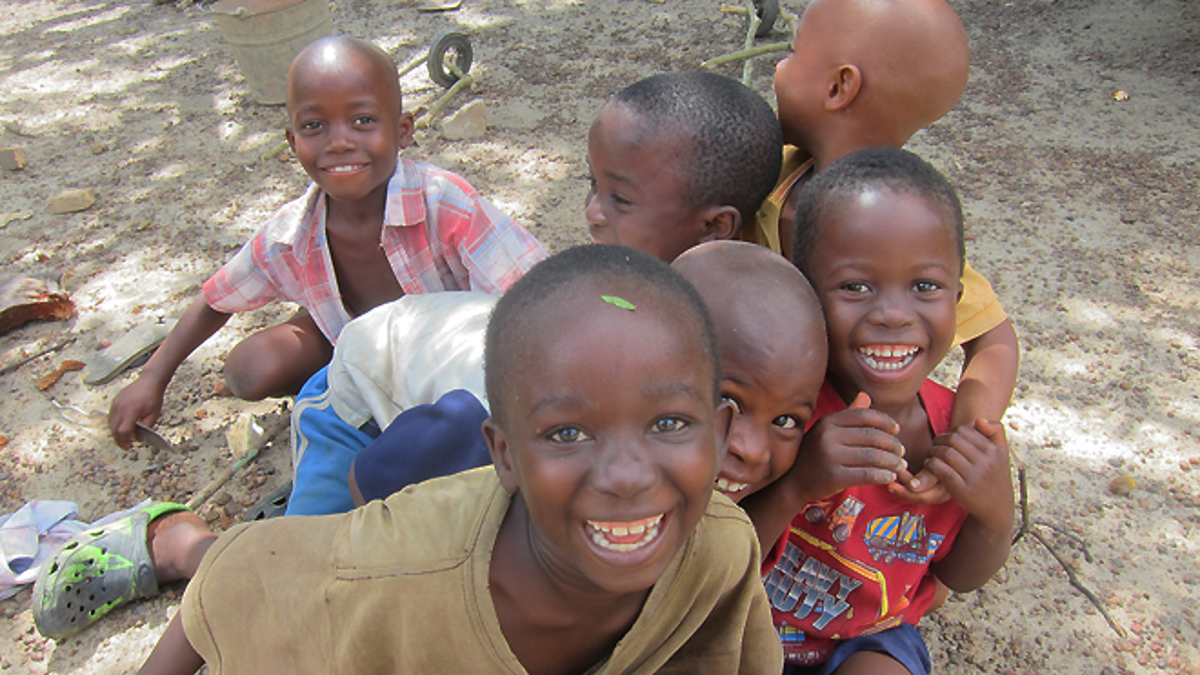
Liberian children captured on camera by CDC's Justin Williams in 2014. (Justin Williams/CDC)
Editor's note: CDC Director Dr. Thomas Frieden recently returned from a trip to West Africa.
While visiting Macenta in rural Guinea, I saw a woman joyously bouncing a young child on her knees, making animated expressions and encouraging and entertaining the child. The woman was a survivor of Ebola, and the child had just been ruled out for the disease – even though her parents had both died from it. In the next tent, an infant was recovering from Ebola, being cared for by her own mother, an Ebola survivor.
Stopping Ebola remains our first priority, but cannot be our only one. I am especially concerned about the thousands of children under age 5 in these impacted countries not being immunized against measles and other killer diseases.
In any emergency, children are among the most vulnerable population. The Ebola epidemic has been especially devastating to children in in Guinea, Liberia, and Sierra Leone.
Stopping Ebola remains our first priority, but cannot be our only one. I am especially concerned about the thousands of children under age 5 in these impacted countries not being immunized against measles and other killer diseases.
There are millions of children living in the three heavily Ebola-affected countries. They face daunting challenges.
1. Death rates from Ebola are particularly high in children under 5 – more than 80 percent.
2. Children in families with Ebola face severe stigma. I met a family with several survivors whose healthy 4-year-old child wasn’t allowed out of the house because the neighbors wouldn’t tolerate it.
3. At least 11,000 children have lost at least one parent to Ebola. Many orphans are shunned by their communities, but in many communities survivors and others are increasingly providing support services.
4. Routine health care is severely undermined, and basic health services for children are often unavailable. Malaria, which is endemic and severe in all of the three countries, is a leading killer of young children. Without treatment, many are at risk of death from an infected mosquito.
5. Obstetrical services are largely unavailable, increasing the risk that mothers and infants will have unsafe deliveries, many with potentially life-long consequences such as brain damage.
6. Many children have experienced deep psychological trauma from the outbreak, witnessing the illness or death of family members, or seeing horrors on the street or elsewhere.
7. Vaccine rates have plummeted, putting a million children at risk for measles and other preventable diseases. CDC is working with the countries, USAID, WHO, the GAVI Alliance, and others to implement vaccination campaigns.
8. Most schools are closed, keeping millions of kids out of classrooms for the past six months. Out of school, children are at no less risk for Ebola, but much greater risk for violence, abuse, and other social problems – in addition to missing critical time in education. CDC is working with UNICEF and USAID to get schools re-opened as quickly and safely as possible.
Stopping Ebola remains our first priority, but cannot be our only one. I am especially concerned about the thousands of children under age 5 in these impacted countries not being immunized against measles and other killer diseases.
Measles is highly infectious and spreads through the air. Unlike Ebola, you can catch it by standing next to someone who has it. And measles, particularly in malnourished children, has serious consequences including blindness, encephalitis, and death.
Getting children back into schools is key to prosperity for families and for countries. Especially given disruptions from the region’s recent civil wars, these countries cannot afford another generation of children without access to education.
Schools can be key communication and social hubs for children and their communities. Schools are important conduits for community health education and public health campaigns, including vaccine programs. Through schools, ministries of education and health can keep an eye on the health of children and, in turn, the community.
More than 200 CDC staff members are on the ground today in Guinea, Liberia, and Sierra Leone, fighting the epidemic and taking steps to build a better future for all of West Africa, especially its children.
